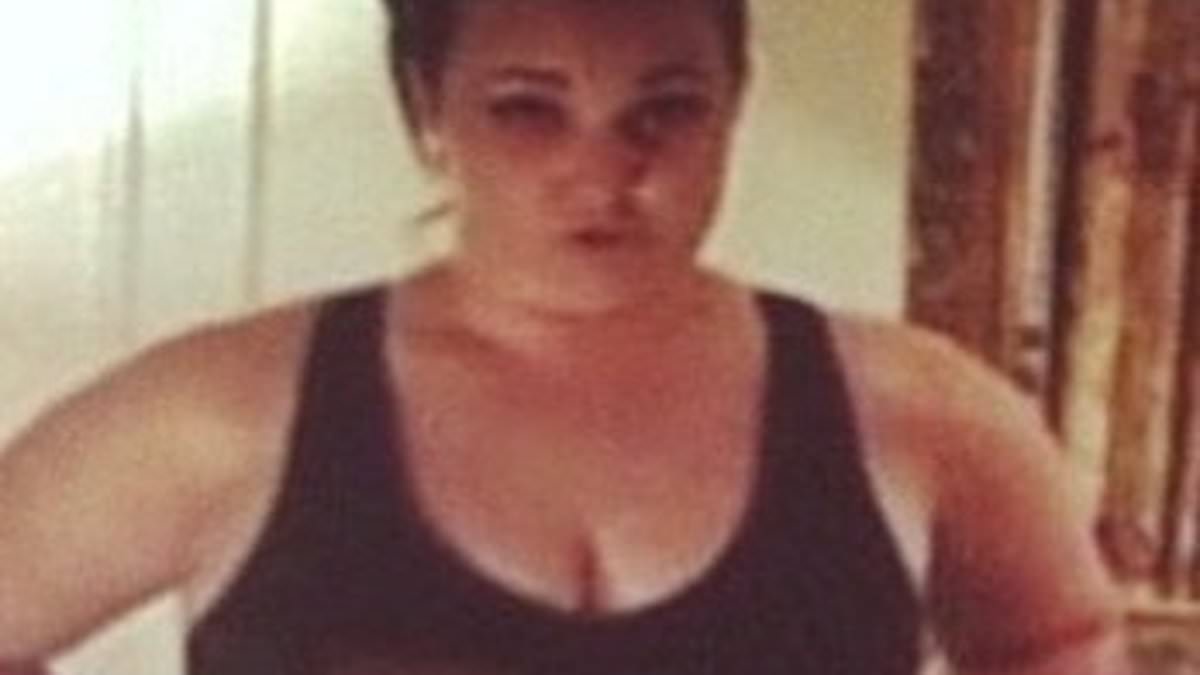A former star of The Biggest Loser has hit back at a new Netflix exposé that accused the hit weight-loss programme of exploiting contestants – insisting it saved her life.
Hannah Curlee Young, 46, appeared on season 11 of the reality contest in 2011, shedding an astonishing 120lbs – more than 8st – and finishing runner-up to her sister Olivia Ward, who took home the $250,000 prize.
More than a decade later, Young says she has kept the majority of the weight off, remaining at around 160lbs – a slim US size 8 – even after two pregnancies.
‘I will forever defend The Biggest Loser,’ she said. ‘I don’t know where I’d be without it. Honestly, I don’t think I’d be here today.’
The Nashville-based wellness coach, who now runs a health business with her sister, lives with her husband Pate, 45, a personal trainer she married in 2015, and their children Milo, nine, and Margot, 20 months.
‘The show gave me the confidence to date again, to change careers, to start a family,’ she said. ‘Seeds were planted back then that are still bearing fruit today.’
Her comments come in response to Fit for TV: The Reality of The Biggest Loser, a three-part Netflix documentary that premiered last month.
The series revisits the NBC ratings juggernaut, which ran for 17 seasons from 2004 to 2016 and briefly returned in 2020, and asks whether its rapid weight-loss methods came at too high a price.

Hannah Curlee Young, 46, appeared on season 11, shedding an astonishing 120lbs and finishing runner-up to her sister Olivia Ward, who took home the $250,000 prize.

When Young auditioned, she weighed 248lbs and was struggling with infertility, pre-diabetes, high blood pressure, high cholesterol and severe depression
Several former contestants claim they were pushed into punishing workouts, put on extreme calorie restriction, and left with long-term health problems.
The show’s dramatic ‘before and after’ reveals often involved losses of 100 to 200lbs in just a few months, sparking criticism from doctors at the time.
Young admits the Netflix series was ‘hard to watch’ but says it presented only one side of the story.
‘It made contestants look like victims – and that’s not my story,’ she said. ‘I walked into that show feeling like a victim. I left as a champion in my own life.’
When Young auditioned, she weighed 248lbs and was struggling with infertility, pre-diabetes, high blood pressure, high cholesterol and severe depression.
‘I had alienated myself socially because of my weight,’ she said.
‘My life was very hard and my weight affected every decision I made – what kind of car I drove, what clothes I wore, what people I surrounded myself with.’
By the finale she was down to 128lbs, saying her health – physical and mental – had been transformed.

Nashville-based wellness coach Hannah, now runs a health business with her sister, lives with her husband Pate, 45, a personal trainer she married in 2015, and their children Milo, nine, and Margot, 20 months

Young admits the Netflix series was ‘hard to watch’ but says it presented only one side of the story
She credits trainer Jillian Michaels with pushing her to confront her issues.
‘The mental transformation was night and day. I had been in such a negative, downtrodden place. I thought there was no hope.’
Young also disputes the documentary’s portrayal of gruelling conditions. ‘We trained with Jillian and Bob [Harper] maybe two or three times a week for three hours, but that was with 20 other people.
‘The rest was walking, hiking, cardio. Nobody forced us to do anything. We were adults.’
She says the show provided extensive medical and psychological support behind the scenes – including doctors, nutritionists, and therapists – which the Netflix programme failed to highlight.
Contestants, she added, underwent heart tests, stress tests and regular medical checks.
‘There was never anyone making us eat certain things or forcing us to work out,’ she said. ‘If you didn’t want to go to a workout, you didn’t have to.’
The Biggest Loser was a phenomenon in its heyday, drawing millions of viewers and spawning international spin-offs.

Hannah credits Biggest Loser trainer Jillian Michaels with pushing her to confront her issues

Trainers including Ms Michaels and Bob Harper have since defended the format, saying it inspired countless viewers to pursue healthier lifestyles

The Biggest Loser has long faced questions over the sustainability of the rapid transformations it showcased

A 2016 study of season eight contestants found many regained much of the weight, in part because their metabolisms slowed dramatically after the show
But it has long faced questions over the sustainability of the rapid transformations it showcased.
A 2016 study of season eight contestants found many regained much of the weight, in part because their metabolisms slowed dramatically after the show.
Trainers including Ms Michaels and Bob Harper have since defended the format, saying it inspired countless viewers to pursue healthier lifestyles.
Young acknowledges that not everyone’s experience was positive, but insists the benefits outweighed the drawbacks.
‘It wasn’t perfect, but for me, it was life-changing. Blaming The Biggest Loser for where you are today isn’t taking accountability.’
More than a decade later, she says she still maintains friendships with trainers, producers and crew – and has no regrets.
‘I don’t know where I’d be without it,’ she said. ‘It gave me a second chance at life.’
